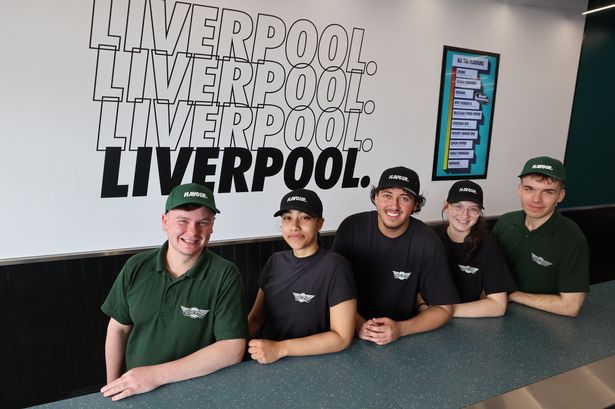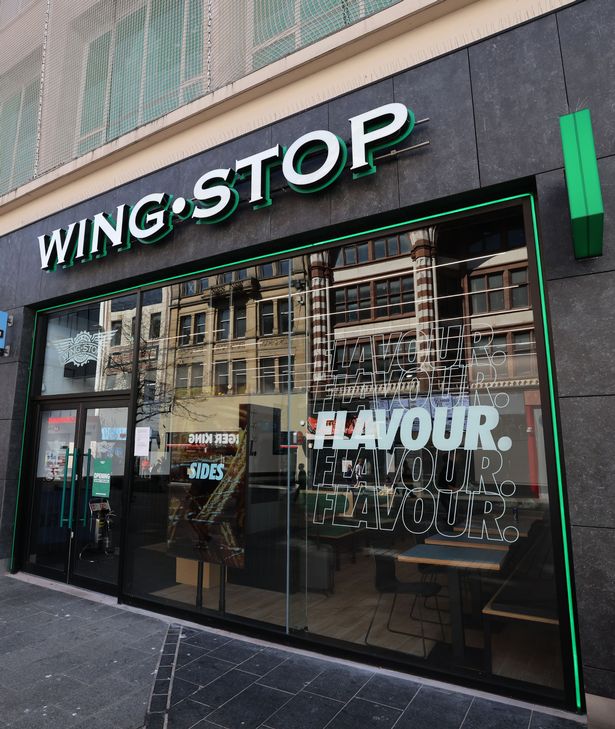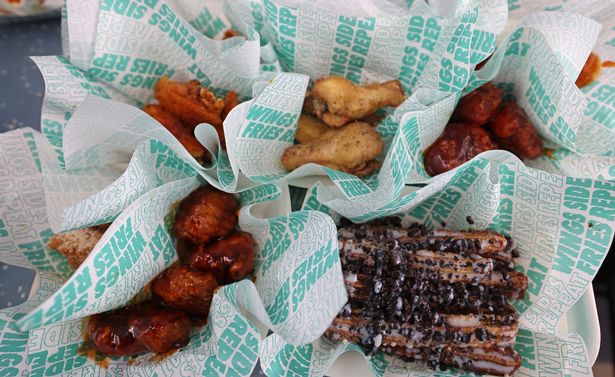A social media post by the ECHO was flooded with the same question
12:28, 15 Apr 2025Updated 12:32, 15 Apr 2025
 Wingstop staff on Lord Street, Liverpool(Image: Colin Lane/Liverpool Echo)
Wingstop staff on Lord Street, Liverpool(Image: Colin Lane/Liverpool Echo)
Wingstop has answered the one question everyone in Liverpool has been asking. The launch of the city’s first site saw massive queues stretch through the city centre as foodies eagerly awaited to get their hands on some chicken.
Barriers and security were put in place outside the Lord Street restaurant, with some customers camping out from as early as 3am. Wingstop is known for its wide selection of chicken items including wings, boneless pieces and tenders.
There are more than 10 flavours available including mango habanero, Brazilian citrus pepper, garlic parmesan and atomic, along with a range of dips.
To celebrate the launch, Wingstop treated the first 100 customers through the door with a free eight-piece chicken meal of their choice. However, prior to this the ECHO was invited down to the premises for a first look before it opened to the public.
 Wingstop on Lord Street, Liverpool.(Image: Colin Lane/Liverpool Echo)
Wingstop on Lord Street, Liverpool.(Image: Colin Lane/Liverpool Echo)
After ECHO reporter Christoper Megrath’s TikTok of the venue went viral – with over 215,000 views – the comments section was flooded with the same query.
Many social media users were wondering if the new site was going to be serving halal food. A Wingstop spokesperson confirmed to the ECHO it would be doing so, just like it does with all it other sites.
The spokesperson added: “All of our restaurants serve Halal chicken. Our suppliers are halal certified and are leading suppliers of halal chicken.
“We take our responsibility to animal welfare seriously and would like to reassure customers that all our halal chickens are pre-stunned to minimise suffering and fear before they’re hand-slaughtered, in adherence to Islamic principles. Our suppliers’ halal certifications are available upon request in our restaurants.”
 Wingstop on Lord Street, Liverpool(Image: Colin Lane/Liverpool Echo)
Wingstop on Lord Street, Liverpool(Image: Colin Lane/Liverpool Echo)
Halal food refers to food that is permissible to eat according to Islamic law and therefore suitable for members of the Muslim community to consume.
The term Halal, which is Arabic, encompasses a variety of dietary guidelines – including focusing on the way animals are treated and the ingredients used in food preparation.
For meat to be considered halal, the animal must be slaughtered in a specific way, known as “zabiha”. This involves a swift, humane cut to the throat while invoking the name of God. The animal must also be healthy at the time of slaughter.
Halal food also must not have come into contact with strictly forbidden items (haram) in Islam. This includes pork, its by-products and alcohol. Similarly, halal food must be prepared and cooked using utensils and equipment that have not been contaminated with haram substances.
Processed foods must be carefully checked for halal certification. This includes ensuring that no haram ingredients are used, such as gelatin derived from non-halal sources.
Many food products come with halal certification from recognised organisations, which ensures that they meet all the necessary requirements for halal consumption.
